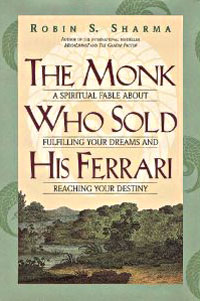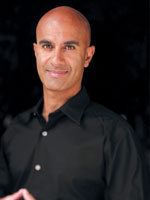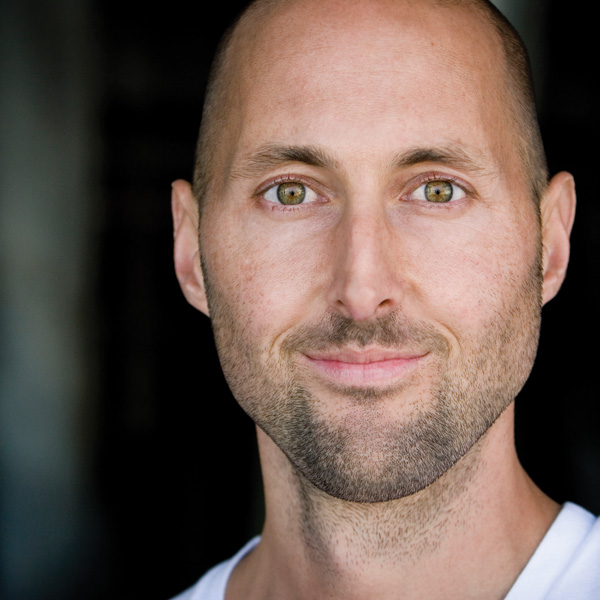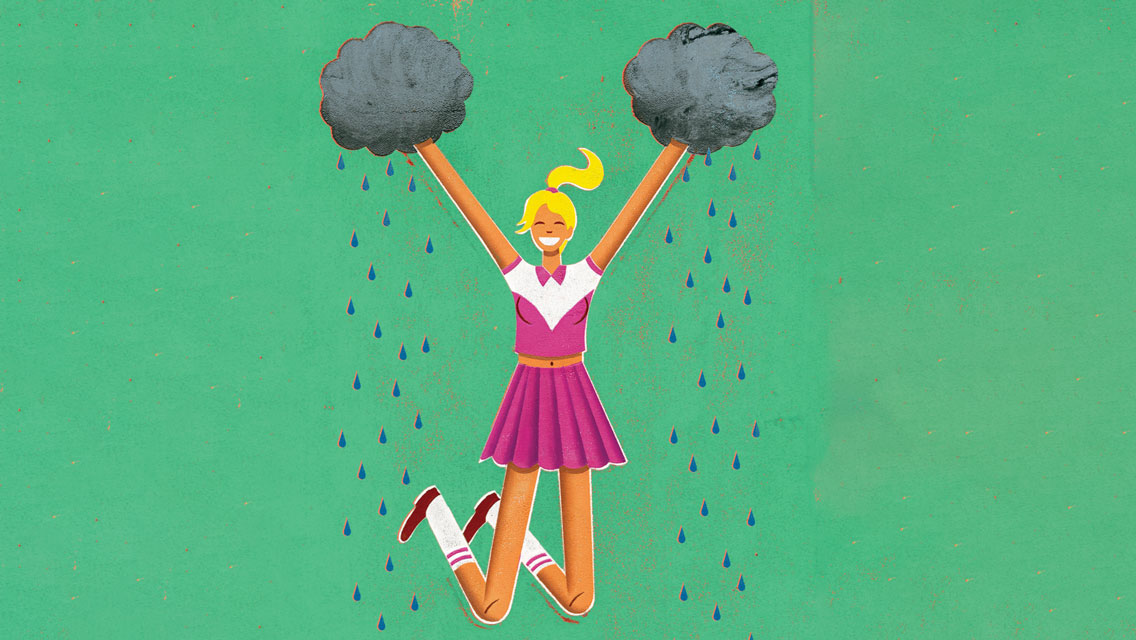The Monk Who Sold His Ferrari is a fable by my soul brother, Robin Sharma. It’s packed with Big Ideas about finding — and living out — your life’s greatest purpose. Sharma’s allegorical protagonist is Julian Mantle, a celebrity attorney who, after having a heart attack in the courtroom, decides to sell his Ferrari and find his spirituality in the Far East. After coming back from the Himalayas, he shares his wisdom with his protégé, John, who tells us the story.
Fine Tune Your Life
Finding your larger purpose starts with fine-tuning everyday activities. Sharma’s character Mantle explains it to John this way: “Investing in yourself is the best investment you will ever make. It will not only improve your life, it will improve the lives of all those around you.”
So, what do you want to do? Get up early? Make time for your kids? Develop a meditation practice? Work out? All of the above? Start doing it — now — and do it for a month.
You may be asking what most of us ask: Where will I find the time? Sharma likes to say that suggesting you’re too busy to slow down and invest in yourself is like being too busy driving to stop for gas. It makes no sense. Your car needs to be refilled with gas. You need to refill your soul.
Commit to living your ideals for one month, and watch the changes start to happen.
Blueprint Your Future
In Sharma’s fable, the mind is a workshop where life is built: “Things are always created twice,” Mantle tells John. “First in the workshop of the mind, and then, and only then, in reality. I call this process ‘blueprinting,’ because anything you create in your outer world began as a simple blueprint in your inner world.”
Too often we spend our energy dwelling on things we don’t want, like fears and worries. Then we spend our spare time blueprinting our vacation so we can escape the stress! Instead, imagine gaining control of your mind by practicing envisioning your ideal life. Start blueprinting that into your consciousness instead.
The Secret of Happiness
“All right,” says the monk to his listener in Sharma’s book, “the secret of happiness is simple. Find out what you truly love to do and then direct all of your energy towards doing it.”
Let’s get right to the point here, reader: What do you truly love? And what percentage of your energy are you putting toward it? Answer those questions on a piece of paper, using real numbers — no fuzzy math.
If it’s not a healthy percentage, you’ve got some work to do. Goethe had some good advice about setting priorities: “Things which matter most must never be at the mercy of things which matter least.”
So, what will happen once you put all your energy into what you love?
According to Sharma’s Mantle, “All your thoughts will be focused on your definite objective. You won’t have time to waste time. Valuable mental power will not be wasted on trifling thoughts. You will erase the worry habit and become more effective. Interestingly, you will also have a sense of inner harmony, as if you are somehow being guided to realize your mission.”
Rise With the Sun
Here’s a thought-provoking exchange between Mantle and the narrator:
“Do you know why most people sleep so much?”
“Why?”
“Because they really don’t have anything else to do. Those who rise with the sun all have one thing in common.”
“Insanity?”
“Very funny. No, they all have a purpose that fans the flames of their inner potential.”
People who have a purpose tend to get up early naturally. Even if you don’t have a clear purpose, if you get up early on a regular basis, you’ll most likely find one. There’s something about the stillness of the morning hours that cleanses the soul and puts us in direct contact with the highest self.
Take Charge of Your Thoughts
A purposeful life requires a disciplined mind. Sharma’s monk puts it this way: “Weak minds lead to weak actions. A strong, disciplined mind, which anyone can cultivate though daily practice, can achieve miracles.”
Do you find yourself having the same negative thoughts again and again? If so, your mind needs some strength-building exercises. As the Buddha said: “More than those who hate you, more than all your enemies, an undisciplined mind does greater harm.”
“More than those who hate you, more than all your enemies, an undisciplined mind does greater harm.”
I suggest you start by removing all criticism of yourself and others, as well as complaining, blaming and gossip. Commit to noticing the thoughts you have, rather than just reacting to them.
As Mantle brilliantly tells John, “If you want to live life to the fullest, care for your thoughts as you would your most prized possessions. Work hard to remove all inner turbulence. The rewards will be abundant.”
Free Your Mind
Mantle explains to John how a mantra can help teach the brain some new tricks: “In Sanskrit, man means ‘mind’ and tra means ‘freeing.’ So a mantra is a phrase designed to free the mind.”
Used as a tool for rewiring our consciousness for thousands of years, mantras — whether spoken, repeated silently or written as affirmations — are powerful indeed. Choosing a few short, positive phrases and practicing them helps train the brain to return to these ideas habitually. Here are some of my personal favorites:
Louise Hay: “I love and accept myself completely.” And, “I release all restrictions. I am free to be me.”
Deepak Chopra: “I am totally independent of the good or bad opinion of others.” And, “I am beneath no one, and no one is beneath me.”
And the classically simple: “Thank you, thank you, thank you, thank you, thank you.”
Put Your Life in Perspective
I’ll leave you with another brilliant bit of conversation from the book. Here Sharma’s monk explains what happens once you’ve cultivated some mental, emotional and physical discipline:
“You will see your life for what it really is: a small blip on the canvas of eternity. And you will come to see clearly who you are, and the ultimate purpose of your life.”
“Which is?”
“To serve, of course.”
Ultimately, the meaning of life is to shine our light joyfully and give our greatest strengths to the world, right? So here’s to your creating your own gorgeous blip on the canvas of eternity.
Download a PDF summary of The Monk Who Sold His Ferrari.
About Robin Sharma


Robin Sharma, founder of Sharma Leadership International Inc., is the author of 11 bestsellers on leadership and personal development. He has been published in nearly 70 languages. Learn more at www.RobinSharma.com.





This Post Has 0 Comments